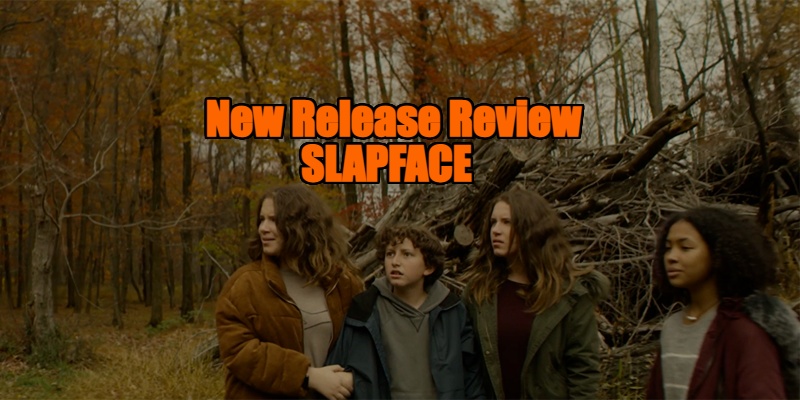
Review by
Eric Hillis
Directed by: Jeremiah Kipp
Starring: August Maturo, Mike Manning, Dan Hedaya, Mirabelle Lee, Lukas Hassel,
Libe Barer, Bianca D’Ambrosio, Chiara D’Ambrosio
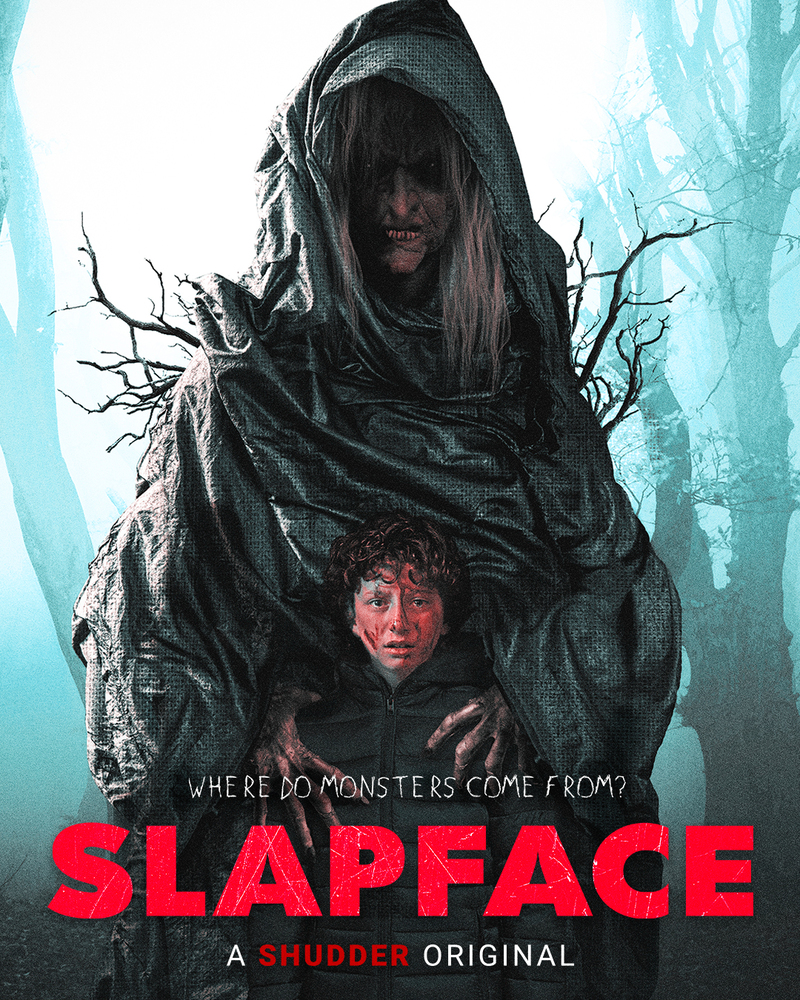
The title of director Jeremiah Kipp's latest feature,
Slapface, refers not to some new Leatherface-esque masked villain but to a
"game" played by its protagonists, orphaned brothers Tom (Mike Manning) and Lucas (August Maturo). Following their parents' death in a
car crash which their sons survived, twentysomething Tom has been left
to raise rebellious tween brother Lucas. They regularly indulge in bouts
of slapface, which sees one brother slap the other, with the recipient
returning the blow with greater force. It's initially left ambiguous as
to why Tom forces his brother to engage in such a physically gruelling
activity. Is it a form of punishment or some twisted coping mechanism?
Perhaps it's both.
Regardless, his treatment at his brother's hands is but one of Lucas's
troubles. He's bullied on a daily basis by a pair of evil twin sisters
(Bianca D’Ambrosio, Chiara D’Ambrosio) straight out of the
Pentamerone, all while his secret girlfriend (Mirabelle Lee)
watches on in silence.
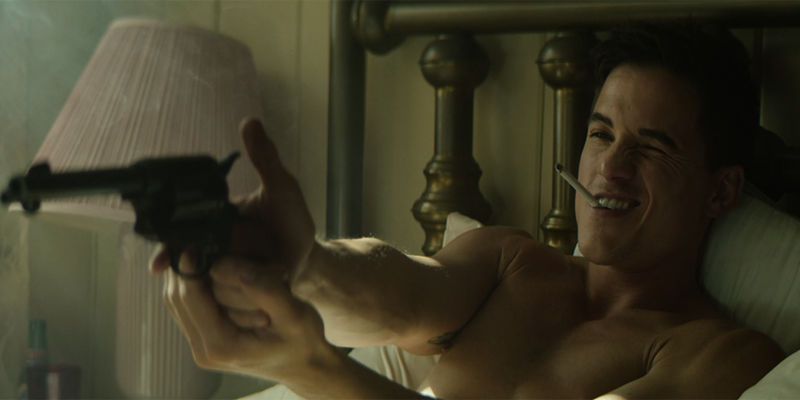
Desperate to reconnect with his late mom, Lucas does some googling and
learns of the local legend of a witch named Virago that can be summoned
by a rite involving blood dripped on his mother's photo. After
performing the ritual, Lucas encounters said witch, who grabs him in a
tight hold. When he escapes her clutches, Lucas flees, but something
draws him back. Perhaps what he needs most of all is to be embraced,
even if it is by a witch.
Slapface is part of a long tradition of troubled children
encountering monsters in the woods. It stretches back to ancient
folklore, but in the cinema it's fuelled such movies as the Spanish duo
of Spirit of the Beehive and Pan's Labyrinth, and more recently Adam McDonald's American indie
Pyewacket. It's the latter that Slapface feels closest to, partly
down to its rural American setting but also to the regret the
protagonist experiences when their monster friend begins to pose a
threat to those around them.
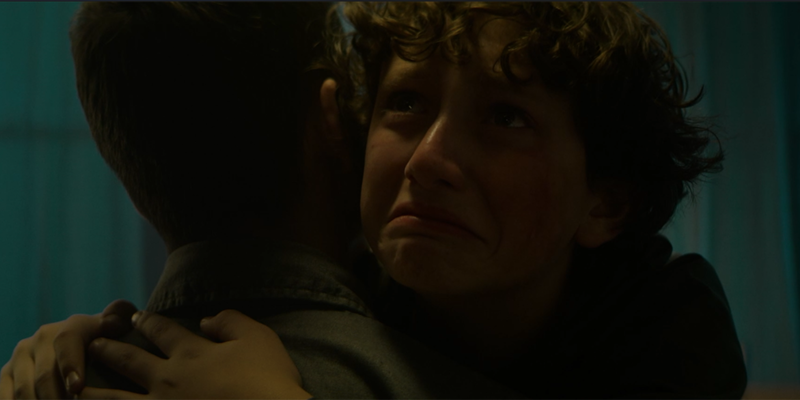
Along with Virago, Lucas is also gifted another surrogate mother in
Anna (Libe Barer), the kindly young woman his brother begins
dating after a one night stand. Anna sees how troubled Lucas is and
begins to worry for his well-being. When Virago's violent acts leave
Lucas looking like the chief suspect, Anna seems to become the film's
protagonist in the manner of Vera Miles in
Psycho. But rather than follow Anna in her investigations, she's sidelined as
the film maintains its focus on Lucas. This kills a lot of the film's
potential tension, as while we suspect Lucas is unlikely to be harmed by
Virago, the same can't be said for Anna, the only other sympathetic
character in the movie.
There's an ambiguity around Virago - who is played by a male performer
and never moves in a particularly feminine manner - that keeps us
guessing as to whether Lucas has really summoned a witch or if it's a
creation of his mind and he's the one responsible for the ensuing
violence. Kipp goes all out in showing us Virago, who is filmed in
shadows at first but is later revealed to look a lot like a bulky person
wearing a dime-store Halloween mask. Virago looks so much like a
traditional witch that we're forced to begin leaning towards the idea
that she's a figment of Lucas's troubled psyche. I won’t spoil the
truth, and besides, I'm not sure I've even come to a conclusion
regarding this question.
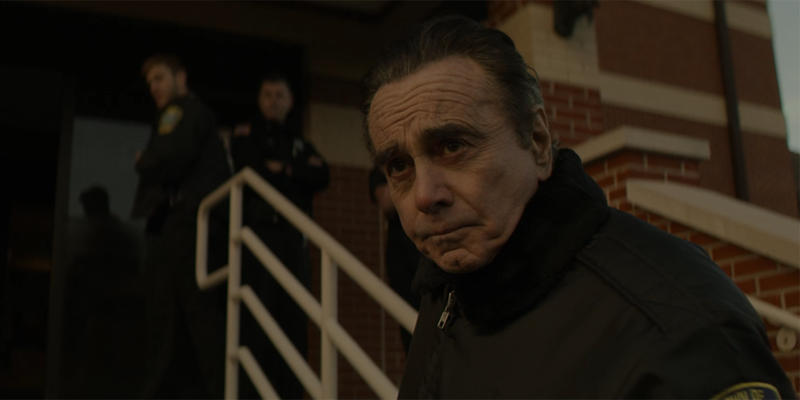
If its final act is a little generic and familiar (a late sequence is
liberally borrowed from '80s thriller The Hitcher), Slapface has done enough by that point in building its
characters and the miserable world they inhabit to keep us invested. A
closing title card hammers home the idea that despite its fantasy
dressing, this is a movie first and foremost about the psychological
damage that can be inflicted on children through bullying, whether at
the hands of other kids or those who claim to be raising them as best
they can.


